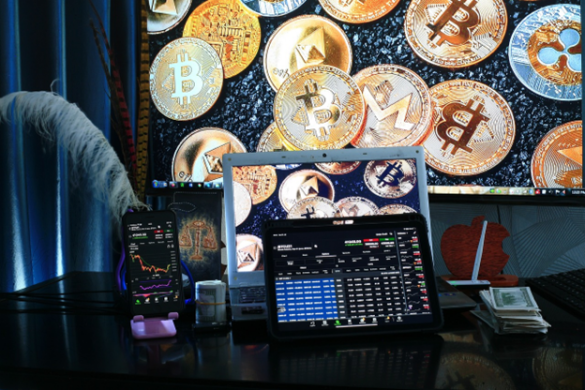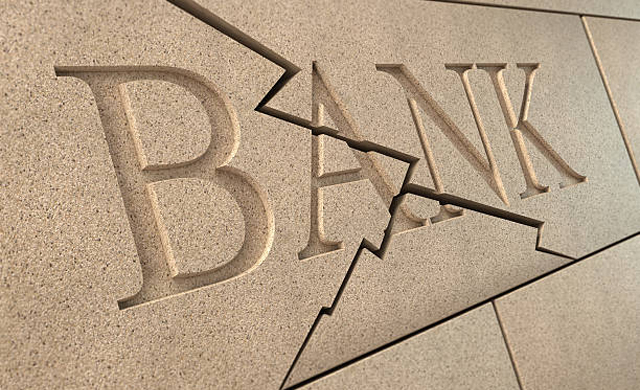A recent bitcoin surge has pushed crypto assets towards becoming the number one investment type in South Korea. This increase in interest witnessed more trading being carried out on Korean crypto sites than on the South Korean stock exchange.

The country’s crypto ecosystem has witnessed an increasing number of crypto exchange sites opening in South Korea as well as many crypto casinos and slot sites that accept Bitcoin and other cryptocurrencies for wagers. The country is also home to a high number of Bitcoin ATMs, meaning locals and visitors can conveniently access crypto for a variety of transactions.
Unemployment and a widening wage gap have led to many young Koreans turning to the blockchain as an alternative source of income. Now, the country is the third-largest market for bitcoin trades in the world, behind only Japan and the US.
On March 10th, 2024, South Korean crypto exchange sites experienced a record total of 11.8 trillion won ($9 billion) worth of trading. This exceeded the trading total of the Korean stock exchange on Friday the 8th (South Korea’s stock exchange is shut on Saturday and Sunday), which was 11.47 trillion won ($8.7 billion).
The four main crypto exchange sites where this trading took place were Upbit, Bithumb, Coinone, and GoPax. Based on Upbit’s data, Bitcoin (BTC) remains the top crypto market in South Korea. It’s closely followed by the won-traded pairs of IQ Protocol’s IQ, SPACE ID (ID), Shiba Inu (SHIB), and 0x’s ZRX.
Today, South Koreans favor a high-risk, high-reward approach to trading. Although bitcoin is currently trading at a higher price on South Korean sites than it is on international exchange platforms, Koreans are still driven to invest in the coin.
The price of Bitcoin is currently $4,000 above the weighted global exchange rate. This excessive price is often referred to as the ‘Kimchi Premium’ and, as of March 2024, is at a 2-year high. A high Kimchi Premium is directly indicative of a high local demand for the coin.
The reason why this premium exists is to do with the crypto restrictions imposed by the local government. These restrictions make it impossible for foreign investors to trade on Korean-based exchange sites. This limits the amount of crypto available in the country, which drives up the price.
Savvy investors take advantage of this and buy Bitcoin on a global exchange site and resell it on a South Korean equivalent for profit. However, this tactic comes with a risk. Those caught committing this profit scheme could be punished under the Foreign Exchange Transactions Act imposed in the country.
This heightened interest in stablecoins has not always been the case. Before, South Korea favored investing in altcoins rather than stablecoins. This included the homegrown and ill-fated TerraUSD (UST) and Luna. The Terra blockchain was started in 2018 by Do Kwon, a South Korean businessman. The TerraUSD market crashed in 2022, which led to a market capitalization loss of $45 billion.
This event put many Koreans off investing in altcoins and crypto altogether. Especially the nation’s wealthy, who still generally don’t see a future in cryptocurrency. However, the wealth divide in the country hit new heights in 2022, which could be the reason behind South Korea’s recently renewed interest in crypto investing.
A 2023 Korean inequality report in the Washington Post found that Korea’s top earners make 64 times as much as the country’s lowest earners. So, it’s unsurprising that an estimated 6 million South Koreans now invest in cryptocurrency.
Most crypto investments come from the country’s under 30-year-olds. A large part of the country’s economic issues are linked to youth unemployment, which could explain why crypto is so popular with younger generations.
Another reason why crypto has recently overtaken the stock market in South Korea is the nation’s ability to quickly adopt new technology.
Throughout history, Koreans have responded to the emergence of new tech early. Like Japan, South Korea was an early adopter of microtransactions. The country also has high-speed internet and advanced telecommunication systems, which allows its crypto environment to thrive.
Koreans view emerging technology as a means of making money and seek to implement it in their daily lives as quickly as possible. Many young Koreans see crypto as being the future of international currency, so deem it a worthy investment.
The third reason why crypto is so popular in South Korea is to do with North Korea. Political uncertainty still looms, and many young South Koreans feel the situation with their northern neighbors could escalate at any minute. Kim Jong-un’s nuclear weapons program casts doubt on many Koreans’ ideas of the future of their country.
This uncertainty makes them wary about investing in Korean-based institutions. Instead, they feel much safer investing their money in stateless options – such as cryptocurrency.
To encourage continued investment in crypto, Korean exchange sites waver fees to make Bitcoin and other cryptocurrencies more economical. For example, Bithumb recently removed trading fees for investors.















